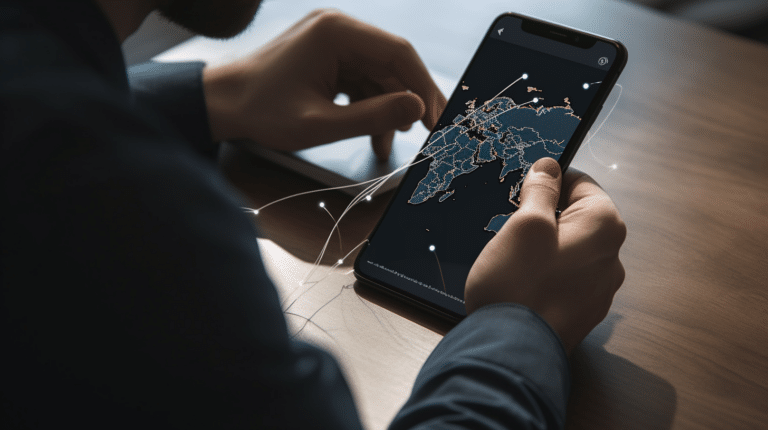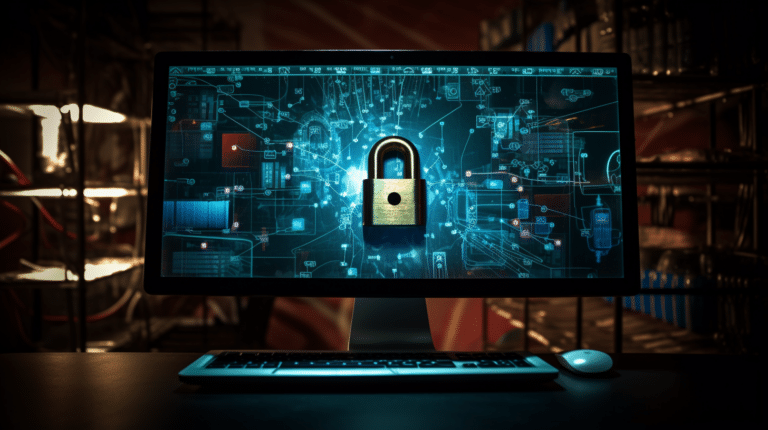In recent years, Virtual Private Networks (VPNs) have gained significant attention as an essential tool for internet users seeking privacy and security online. VPNs work by creating an encrypted tunnel between a user’s device and the internet, effectively shielding their data from hackers, snoops, and surveillance. As with any technology, VPNs have pros and cons that users must consider before deciding whether they are the right choice.
While many praise VPNs for their ability to protect user data and bypass geo-blocks, some critics argue that they can come with performance drawbacks and varying levels of effectiveness. It is important for users to thoroughly research VPN providers and stay informed about the latest updates in the VPN industry before making a choice. Balancing the advantages and drawbacks of VPNs allows internet users to make an informed decision about incorporating this technology into their online activities.
Key Takeaways
- VPNs offer security and privacy benefits by encrypting data and masking users’ IP addresses.
- Using a VPN can help bypass geo-restrictions and access blocked content.
- Performance and effectiveness depend on the choice of VPN provider and protocol.
Security Advantages
Encryption
A significant security advantage of a Virtual Private Network (VPN) is its use of encryption. Encryption is a process that scrambles data, making it unreadable to anyone intercepting it. VPNs use different encryption protocols, such as AES-256, to secure data transmitted between the user’s device and the VPN server. This helps protect sensitive information from being intercepted and misused by hackers or other third parties when browsing online or using public Wi-Fi networks.
Kill Switch
Another essential security feature provided by VPNs is the kill switch. A kill switch is designed to automatically disconnect the user’s device from the internet if the VPN connection drops unexpectedly. This prevents data leaks, ensuring that sensitive information and the user’s IP address remain protected even during temporary connection disruptions.
Protection from Hackers
VPNs offer additional protection against hackers by concealing the user’s IP address and location information. This makes it difficult for hackers to target specific devices or users based on their identifiable information. By connecting to a VPN server, the user’s original IP address is replaced with the VPN server’s IP address, effectively masking their online identity and reducing the risk of targeted cyber-attacks.
Privacy and Anonymity
Lastly, VPNs contribute to maintaining privacy and anonymity online. As mentioned earlier, a VPN hides the user’s IP address and encrypts data to make it unreadable. This not only protects user information from hackers but also prevents internet service providers (ISPs) and websites from tracking a user’s browsing activities and location information. In doing so, VPNs provide an additional layer of privacy and allow users to maintain anonymity when surfing the web.
Privacy Benefits
Protection from ISPs
A significant privacy benefit of using a VPN is protection from ISPs. Internet Service Providers (ISPs) can log and monitor your online activities, potentially selling this data to third parties or using it for targeted advertising. By encrypting your internet traffic, a VPN prevents your ISP from knowing which websites you visit or what data you send and receive. This level of encryption enhances your online privacy and secures your personal information from prying eyes.
No Browsing History Tracking
Another advantage of using a VPN is no browsing history tracking. Websites and online services often track your browsing history using cookies and other tracking techniques. These practices can lead to personalized advertising and diminished privacy. A VPN masks your IP address, making it difficult for websites to identify you or link your browsing history to your specific device, thus maintaining a higher level of online privacy.
Avoiding Surveillance
VPNs can also help users avoid surveillance by governments and other entities. Some countries may monitor internet traffic for various reasons, from maintaining national security to censoring content. A VPN enables users to bypass these restrictions by connecting to servers in different countries, ensuring their online activities remain private and secure.
Preventing DNS Leaks
Finally, preventing DNS leaks is another essential privacy benefit of using a VPN. DNS (Domain Name System) servers translate website URLs into IP addresses, allowing your device to communicate with websites. DNS leaks can occur when your device accidentally sends DNS requests to your ISP instead of the VPN’s DNS server. This can expose your browsing history to your ISP or other third parties, compromising your privacy. Quality VPNs have security measures to prevent DNS leaks, ensuring your online privacy remains intact.
Streaming and Access
Unblocking Geo-Restricted Content
Using a VPN can help you bypass geo-restrictions by masking your IP address and making it appear as though you are connecting from a different location. This allows you to access content that may not be available in your area. For example, if you want to watch shows on BBC iPlayer outside the United Kingdom, a VPN with a UK server can help you access the content.
However, it is essential to note that not all VPNs can effectively unblock geo-restricted content. Some VPNs may have a limited number of servers or server locations, affecting your ability to connect to the desired content.
Streaming Platforms Compatibility
VPNs have varying levels of compatibility with popular streaming platforms like Netflix, Hulu, and BBC iPlayer. While some VPNs are effective in accessing these platforms, others may struggle or fail entirely to bypass streaming services’ VPN detection technology. Before choosing a VPN for streaming, it’s crucial to research whether it can consistently access your preferred platforms to ensure a seamless streaming experience.
Accessing Censored Material
A major benefit of using a VPN for streaming purposes is the ability to bypass online censorship and access content in regions with strict internet controls. VPNs can help you avoid censorship by protecting your privacy online, hiding your browsing activity, and connecting to servers in more open regions.
Keep in mind that circumventing censorship could come with risks, depending on the rules and regulations of your country. It’s essential to research the legal implications of using a VPN to access censored material in your region to avoid potential consequences.
In conclusion, using a VPN can offer numerous benefits for streaming and accessing content across various platforms and regions. However, it’s crucial to choose the right VPN based on compatibility, unblocking capabilities, and legal compliance to maximize your streaming experience.
Performance Impact
Impact on Connection Speed
Using a VPN can have an impact on your connection speed. In some cases, VPNs may slightly reduce your internet speed due to the encryption process and the additional distance that data has to travel through the VPN servers. However, in some situations, a VPN can actually improve your connection speed. For instance, if your ISP is throttling your bandwidth for specific activities like streaming or torrenting, a VPN might help by masking the type of traffic you’re engaging in.
To summarize, the impact of a VPN on your connection speed can be:
- Slower connection: due to encryption process and data travelling through VPN servers
- Faster connection: by bypassing ISP throttling for specific activities
Lag in Gaming Experience
For gamers, a VPN can have both positive and negative effects on the gaming experience. On one hand, using a VPN can provide better security, protect against DDoS attacks, and grant you access to geo-blocked gaming content. However, using a VPN might also introduce some latency, which is especially critical in fast-paced online games where response time is crucial.
Factors affecting the gaming experience with a VPN include:
- Increased latency: VPN servers can introduce additional milliseconds to your ping time, potentially causing lag
- Better security: Protection against DDoS attacks and increased privacy
- Access to geo-blocked content: Ability to play games or access content not available in your region
To get the best gaming experience while using a VPN, it’s important to choose a VPN service with a large number of servers, low latency, and a reputation for good performance. Additionally, selecting a server close to your physical location or the game server, you’re connecting to can help reduce latency and improve the overall gaming experience.
Considerations and Drawbacks
Free VPNs vs. Premium VPNs
When considering adopting a VPN service, it’s essential to understand the difference between free and premium VPNs. Free VPNs offer basic functionality and may be suitable for occasional use. However, they often come with several drawbacks, including limited server selection, slow connection speeds, and data caps. On the other hand, Premium VPN services offer better security features, faster connections, and unlimited data. These services may also provide a more reliable connection and customer support. Therefore, it’s crucial to weigh the pros and cons of each type of VPN before deciding which one best suits your needs.
Cost of VPN Services
The cost of VPN services varies significantly depending on the provider and the level of service. Some free VPNs may seem like an affordable option, but they can come with limitations that affect their usability and security. Premium VPN services charge a monthly or yearly subscription fee which provides more features and better overall performance. It’s essential to compare different providers and their costs to find a VPN that fits within your budget while offering ample functionality and protection.
Potential Connection Drops
Despite their benefits, using a VPN can sometimes result in connection drops. These moments can be frustrating, especially during critical tasks or while streaming content. Connection drops occur when the VPN service loses its link with the VPN server, causing the user’s traffic to become temporarily unprotected. Multiple factors might contribute to this issue, such as network congestion, server overload, or even the user’s ISP blocking VPN connections. It’s essential to choose a reliable VPN provider that minimizes connection drops to ensure a stable and secure connection.
Protocols and Providers
Common VPN Protocols
There are several VPN protocols available, each with its own set of advantages and disadvantages. Let’s briefly discuss the most common ones:
- OpenVPN: This open-source protocol offers a good balance between security and speed. It is widely used and highly recommended for its strong encryption, compatibility with various platforms, and the fact that it is open source, which allows for continuous improvement and auditing.
- WireGuard: A newer protocol, WireGuard is praised for its simple and efficient design, offering excellent performance and security. It is gaining popularity among VPN users and providers.
- Other protocols: There are also other protocols available, such as L2TP/IPSec and PPTP, but they generally offer less security and are not as widely recommended.
Top VPN Providers
When it comes to selecting a VPN provider, there are several important factors to consider, such as security, performance, and reliability. Some of the top VPN providers include:
- ExpressVPN: Known for its strong security features and fast connection speeds, ExpressVPN consistently ranks among the best choices for VPN users. It offers a wide range of server locations, user-friendly applications, and solid customer support.
- NordVPN: Another popular choice, NordVPN is recognized for its high level of security, strict no-logs policy, and an expansive server network. NordVPN also offers applications for multiple platforms and devices.
- Other providers: There are numerous other VPN providers that offer different features and cater to different needs. It is essential to carefully research and compare options before choosing the best one for your requirements.
Money-Back Guarantees
Many VPN providers offer money-back guarantees, which allow users to try the service risk-free for a specified period. This is helpful in testing the performance, security, and reliability of a VPN before committing to a long-term subscription. Both ExpressVPN and NordVPN offer a 30-day money-back guarantee, giving users the opportunity to evaluate their services thoroughly.
Additional Features and Benefits
Business and Enterprise Use
VPNs offer numerous advantages for businesses and enterprises. They provide a secure way to access corporate networks and resources remotely, ensuring confidentiality and controlled access to sensitive information. This increases employee productivity as they can access work-related documents and systems from anywhere. Additionally, VPNs enable organizations to establish a geographically diverse workforce without the need for costly dedicated lines or leased networks.
Public Wi-Fi Security
One significant advantage of using VPNs is the enhanced security they offer when accessing the internet through public Wi-Fi hotspots. Open Wi-Fi networks can be exploited by hackers, leaving users vulnerable to data breaches and cyber-attacks. VPNs create an encrypted tunnel between the user’s device and the VPN server, ensuring that all data transmitted is secure and private, even when using potentially unsafe public networks.
Avoiding Bandwidth Throttling
Internet service providers (ISPs) may sometimes throttle or limit the bandwidth of users to manage network congestion or to impose data caps. A VPN can help users avoid bandwidth throttling by masking their internet activities, making it harder for ISPs to identify high-bandwidth usage and apply restrictions. As a result, users can experience faster and more consistent internet speeds when using VPNs.
Protection from DDoS Attacks
Distributed Denial of Service (DDoS) attacks aim to overwhelm a target’s network or server, rendering their services unavailable and causing significant financial and reputational damage. VPNs offer an additional layer of protection against DDoS attacks by hiding the user’s real IP address and allowing them to connect through a different location. This can make it more difficult for attackers to target a specific IP address and carry out a successful DDoS assault.
Utilizing VPNs for public Wi-Fi networks, businesses, avoiding bandwidth throttling, and protection from DDoS attacks offers a multitude of benefits. While there are pros and cons to consider, the additional features and security provided by VPNs can outweigh potential drawbacks in many cases.
Frequently Asked Questions
What are the main benefits of using a VPN?
A VPN (Virtual Private Network) offers numerous advantages for its users. Some of the primary benefits include enhanced privacy and security, as it encrypts your data and hides your IP address from potential threats. Additionally, a VPN allows you to bypass geographical restrictions, enabling access to content not available in your region.
What are the potential drawbacks of using a VPN?
Despite the numerous benefits, using a VPN also has some potential drawbacks. One of the main concerns is the possibility of slower internet speeds due to the additional layer of encryption and routing via the VPN server. Another issue is the risk of choosing an untrustworthy VPN provider, which may inadvertently compromise your privacy and data.
How does a VPN impact internet speed and connection?
A VPN may impact your internet speed and connection because your traffic is routed through a VPN server. The encryption process involved in VPN connections can also slow down speeds. However, the specific impact depends on various factors such as server location, server load, and the VPN service itself. In some cases, a VPN may improve internet speed if it helps avoid bandwidth throttling by your ISP.
Are all VPN services equally secure and private?
Not all VPN services are created equal. The level of security and privacy offered by a VPN provider depends on factors such as encryption standards, server infrastructure, logging policies, and jurisdiction. To ensure the best security and privacy, it is crucial to choose a reputable VPN provider with a strong track record and transparent policies.
How do free VPNs differ from paid VPN services?
Free VPNs typically have limitations compared to paid VPN services. These limitations may include lower speed, fewer server locations, and restricted data usage. Furthermore, free VPNs may rely on advertising revenue, which can compromise user privacy. Paid VPN services often provide better security, faster speeds, and a larger server network, making them a more suitable option for users who require consistent and reliable VPN performance.
When should you consider not using a VPN?
There are specific situations where not using a VPN might be more appropriate. For example, if you are performing activities that require extremely low latency, such as online gaming or video conferencing, a VPN may not be ideal due to potential speed reductions. Additionally, some websites and services may block VPN connections, requiring users to disconnect their VPN to access the content.






